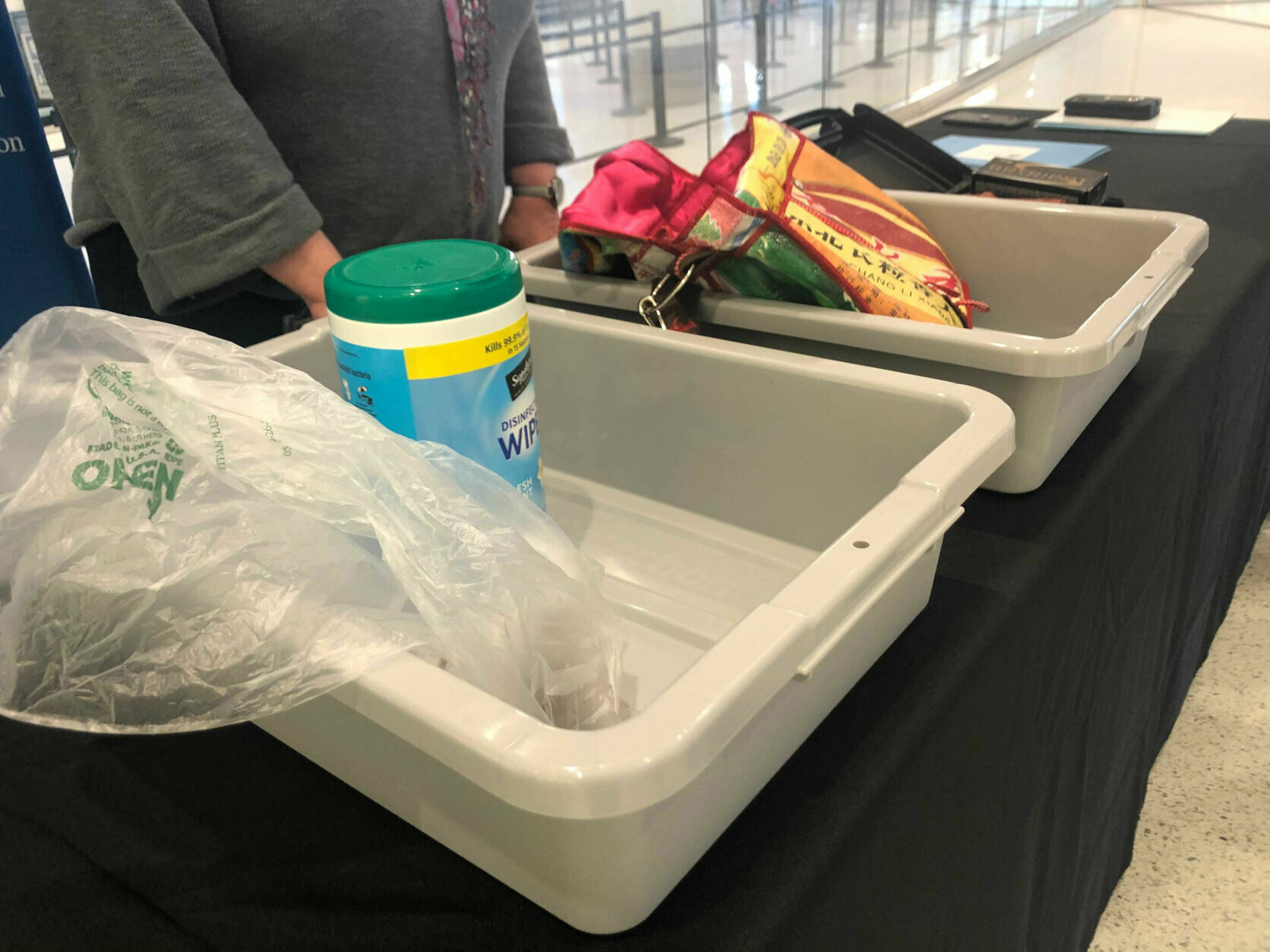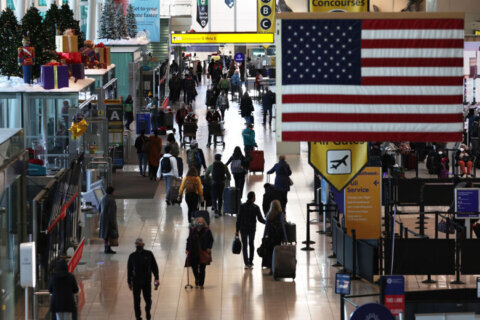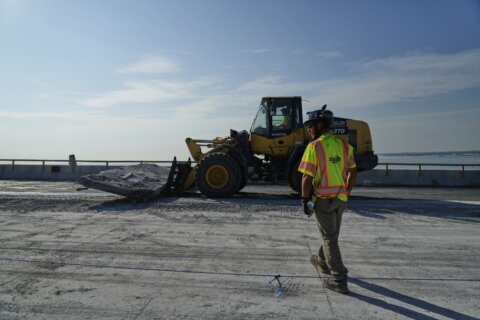As pandemic metrics improve nationwide, more Americans are returning to the airport.
And on Tuesday, the Transportation Security Administration and BWI Marshall Airport detailed what the so-called “new normal” means for the airport-security experience.
“As people come to the checkpoint, it’s going to look a little different,” said TSA spokesperson Lisa Farbstein.
Reducing “touch points” between passengers and security personnel is the goal, she explained. Acrylic shields have been placed around travel-document-checking stations and at checkpoints.
“This is an attempt to cut down on cross-contamination between passengers and TSA officers,” Farbstein said.
Those officers will also be wearing masks and gloves — and will change them after every pat-down and bag check.
“TSA will ask you to remove your mask momentarily so they can make sure your face matches your photo ID. There will also be the same social-distancing markers on the floor,” she said.
(The mask mandate, Farbstein said, is still in place until Sept. 13 — after the Labor Day holiday.)
During document checks, passengers will be asked to scan their own boarding passes and IDs.
“You put your electronic device or paper boarding pass right on the reader. This eliminates a touch between you and TSA,” she said. “We also have credential authentication technology. It basically makes sure your ID is good and valid. Instead of handing your ID to the TSA officer, you can insert your license or passport in the reader.”
TSA has also made an exception to its liquids rule during the pandemic. Travelers may bring up to one 12-ounce container of liquid hand sanitizer through a checkpoint.
Passengers can also bring disinfectant wipes through the checkpoint.
“We want to make sure you are wiping down your luggage and the handles of your luggage,” Farbstein said. “Additional screening will be needed for the larger-size handwipes [containers].”
When passengers are asked to remove items from their pockets, they should put the items in their carry-on bag, instead of a bin.
TSA also advises passengers not to hold their phones up to their faces if they have just put their phone in a bin.
“That way, it’s eliminating a touch point,” she said.
While not a requirement, when traveling with food, passengers are urged to store food in individual plastic bags — to avoid triggering an alarm that TSA will have to resolve.
“Put your food into plastic bags at home, put that into your carry-on bag. At the security checkpoint, put it in the bin. That eliminates touch points between food items and bins,” Farbstein said.
TSA also advises when you travel with a firearm to make sure it’s unloaded, the ammunition is packed in its original box, the lock of the case is on and that the case is hard-sided.
“Check it in with the airline counter to travel in the belly of the plane, never in the cabin of the plane,” Farbstein said.
During the pandemic, Farbstein said, TSA has seen “a lot” of oversized liquid containers.
“Then the TSA officer has to open the bag and remove it because it will trigger an alarm,” she said. “The idea is to reduce the number of touch points.”
To help travelers prepare in advance, TSA recommends its app, MYTSA. It allows a passenger to enter an item, and the app will tell them to check it in a bag, put it in a carry-on bag, either or neither.
Last Friday, BWI Marshall set another travel record since the pandemic began — 24,400 passengers were screened through security. Those numbers are inching closer and closer to a pre-pandemic period in 2019, when at the same time of the year, 36,000 passed through security. Travelers broke a new record nationwide, too. On Sunday, 1.8 million people passed through security checkpoints at U.S. airports, according to the TSA.
“Currently we are screening an average of 1.3 to 1.5 million passengers nationwide,” Farbstein said. “Travel is up, though. Sunday was our busiest day since the start of the pandemic, with 1.8 million.”
See more about the changes in the gallery below.
WTOP’s Melissa Howell contributed to this report.












